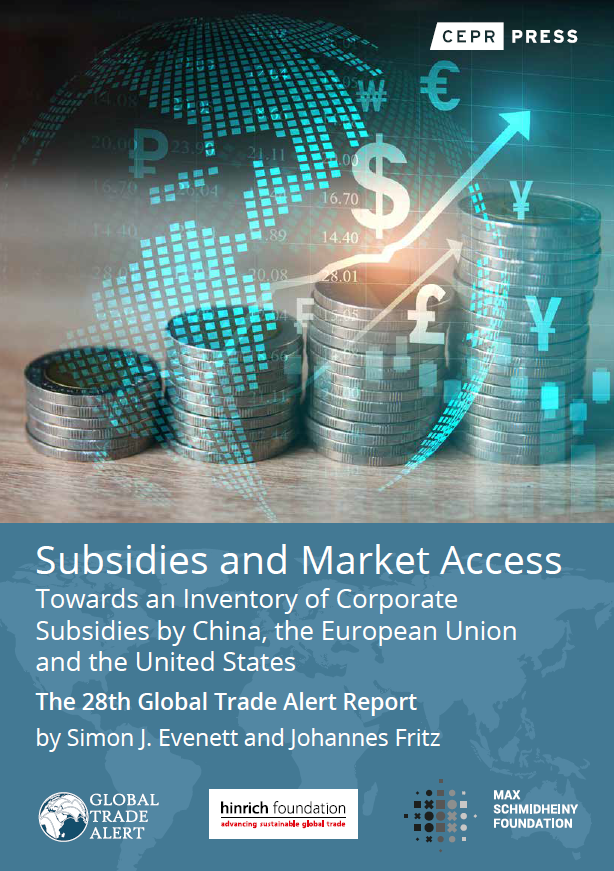Trade distortion and protectionism
Subsidies and market access: Towards an inventory of corporate subsidies by China, the EU and the US
Published 26 October 2021
Corporate subsidies are a major source of controversy in the world trading system. The data makes clear that subsidies pervade global trade by impeding reciprocity between trade partners. In this first comprehensive inventory of the world's three largest subsidy regimes, the authors call for an urgent need to renew cooperation to reverse the deficit of trust caused by subsidies to safeguard the future of trade.
The number of subsidy-related trade disputes has increased sharply since 2010, as have investigations launched into subsidised imports. Yet, at present there is no work programme at the WTO on the trade-related aspects of subsidies in general; no serious attempts to find common ground.
Worse, governments face a conundrum. They are mindful that foreign subsidies can erode the market access won in previously negotiated multilateral and regional trade agreements. Yet, evidently, governments want to retain subsidies to tackle pressing national and global concerns, such as the COVID-19 pandemic response, decarbonisation, and the clean energy transition. What one government regards as a good subsidy and a legitimate exercise of national sovereignty can be viewed more negatively by trading partners.
Recriminations have been exacerbated by a lack of comparable and reliable information on subsidy schemes and awards. In this Hinrich Foundation sponsored report, authors Simon J. Evenett and Johannes Fritz of the University of St. Gallen assembled an inventory of 18,137 corporate subsidies awarded by China, the EU, and the US since November 2008 to assess the scale of national and cross-border commerce affected by these trading powers’ subventions.
Given that trillions of US dollars of trade are involved, and the growing discord between governments over subsidy matters, the time is ripe for deliberation about the nexus between subsidies, market access, and the potential for enhanced international cooperation. The paper concludes by describing six specific goals of this needed policy dialogue on the trade-related aspects of corporate subsidies.
The report is accompanied by a series of insightful interviews with experts of subsidies regimes, including:
Simon J. Evenett on how the 28th GTA report contributes to the subsidy transparency in the world trade system and fills a key research gap.
Johannes Fritz on why the topic of subsidies was selected for the 28th GTA report and what research gap is being filled.
Henry Gao on why transparency of information on subsidies is important.
Caroline Freund on the benefits of shedding light on corporate subsidies.
Patrick Low on how subsidy transparency can lay the foundation for policy dialogue between WTO members.
Mia Mikic on how better data can be used to better understand the impact of subsidies.
© The Hinrich Foundation. See our website Terms and conditions for our copyright and reprint policy. All statements of fact and the views, conclusions and recommendations expressed in this publication are the sole responsibility of the author(s).







